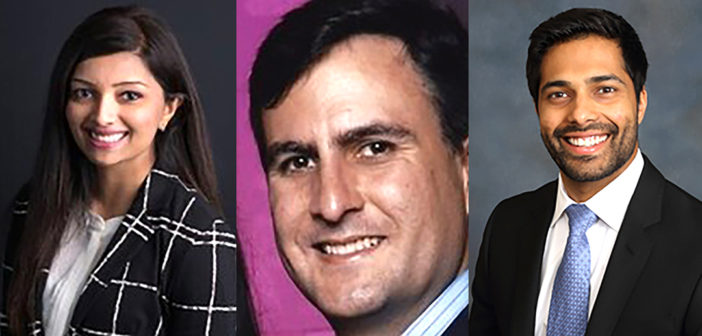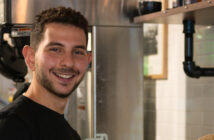On the front lines of the coronavirus pandemic are doctors, nurses and public health officials alike racing to treat patients and prevent further spread, working relentlessly to ensure global safety.
As medical professionals, the careers and livelihoods of several Lehigh alumni have been impacted as they treat COVID-19 patients and tend to other medical needs of their communities in this ever changing landscape.
Rita Shah, ‘08, an anesthesiologist and interventional pain medicine physician, has continued serving her patients as her specialty shifts to telemedicine.
The private practice for which she administers pain management for her patients has reduced the amount of hours it’s open. Shah is currently operating at roughly 50 percent capacity to ensure the safety of her patients and the medical professionals employed by the practice, she said.
To continue care, Shah has been seeing patients virtually to reduce risk.
“Given the current conditions, we are doing pretty well with telemedicine,” she said, emphasizing the importance of providing patients with needed care.
However, it is also necessary for doctors to consider and understand the risk that entering an office poses, as it could expose both themselves and their patients to the virus.
Shah said she believes the medical field will grow and adapt to these new challenges, allowing for a broadening of the ability to care for patients as doctors think creatively to continue their care.
Her husband, Kumar Shah, ‘08, is an interventional radiologist who has been seeing COVID-19 patients on a regular basis since the onset of the pandemic.
“The recommendations set forth continue to evolve,” he said.
As a doctor experiencing the pandemic firsthand, he described the protocol implemented to keep himself safe while tending to the welfare of others.
The limited availability of personal protective equipment is a pressing issue impacting medical professionals during this time. They are trying to reuse masks when possible and are using their own resources to find extra masks for their own use, he said.
Francisco Coronado, ‘94, a nurse working in an intensive care unit in Miami, said the lack of resources currently available to the medical community is a critical issue.
It is necessary for his own safety to wear gowns, face shields and masks when treating COVID-19 patients, he said. N95 masks — protective face gear shielding nurses and doctors from airborne pathogens — are currently in short supply, challenging those tending to COVID-19.
There is also a shortage of disposable stethoscopes, which allow medical professionals to monitor patients without reusing utilities.
“We’ve seen an increase in patient load,” Coronado said, explaining that the ICU in which he works has gotten considerably busier since the onset of the pandemic.
In normal circumstances, ICU patients under airborne conditions are 1:1 with nursing staff. However, due to the increased quantity of patients in need of intense medical assistance, the ratio of patients to nursing staff has risen to 2:1 or 3:1, he said.
As the pandemic continues to progress, Coronado stressed the importance of staying at home to reduce the spread. This ensures the safety of both the individual and those around them to reduce potential exposure and complications.






Comment policy
Comments posted to The Brown and White website are reviewed by a moderator before being approved. Incendiary speech or harassing language, including comments targeted at individuals, may be deemed unacceptable and not published. Spam and other soliciting will also be declined.
The Brown and White also reserves the right to not publish entirely anonymous comments.